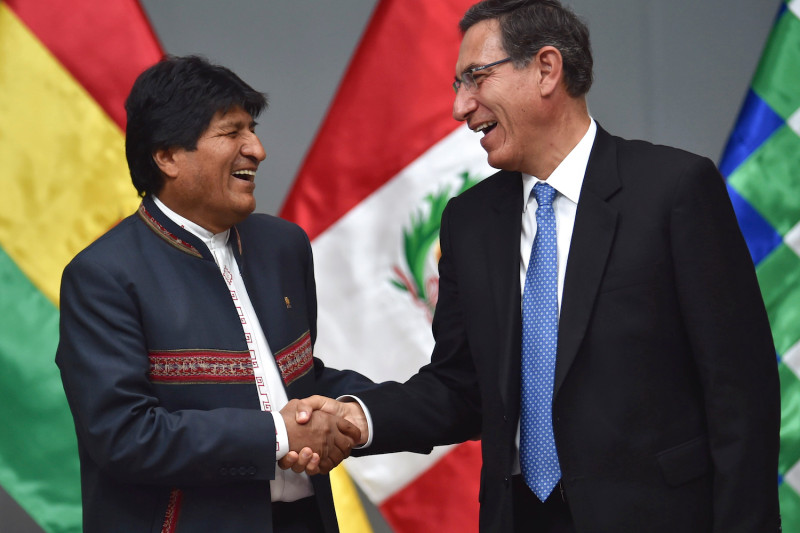
Peruvian President Martin Vizcarra (R) shakes hands with his Bolivian counterpart Evo Morales during their fifth joint staff meeting at the Peruvian port of Ilo, 1,300 km south of Lima on June 25, 2019. (Photo by Cristobal BOURONCLE and CRIS BOURONCLE / AFP) (Photo credit should read CRISTOBAL BOURONCLE,CRIS BOURONCLE/AFP via Getty Images)
Riven by ideological divisions and facing a lack of adequate regional mechanisms, neighboring countries cannot even agree on whether Evo Morales’s ouster constitutes a coup.
BY OLIVER STUENKEL | NOVEMBER 13, 2019, 4:58 PM
Rather than jointly addressing the crisis in Bolivia following President Evo Morales’s resignation this week, Latin American leaders from both sides of the ideological spectrum used events in La Paz to mobilize their hard-line supporters at home.
Venezuela’s Nicolás Maduro, along with other left-wing leaders, denounced what he called a military coup and suggested that the United States may have been involved. The sentiment that Morales’s ouster was illegitimate was echoed by other left-wing governments in Mexico, Nicaragua, and Cuba, as well as Argentine President-elect Alberto Fernández, who criticized Bolivia’s armed forces for publicly asking Morales to leave office. Right-wing leaders, on the other hand, celebrated Morales’s ouster as a victory for democracy.








